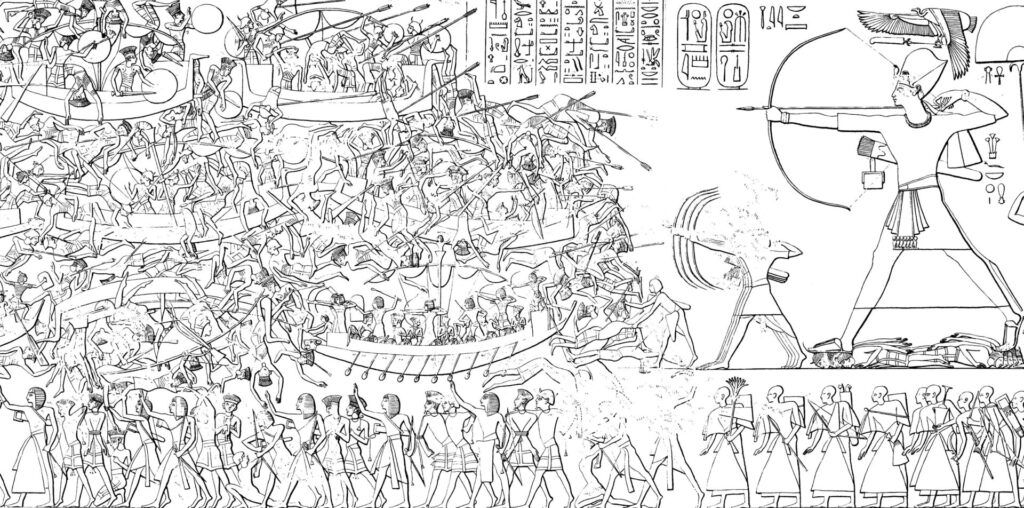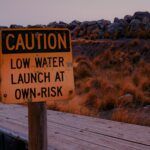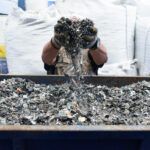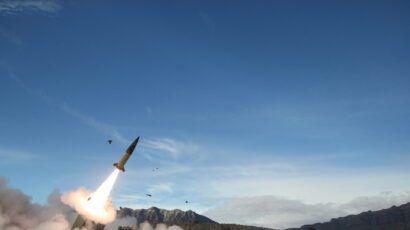Did climate change help cause the Bronze Age to collapse?
By Kristoffer Tigue | February 16, 2023
 Relief depicting Ramses III defeating the “Sea Peoples” in the Battle of the (Nile) Delta, from the northeast wall of the temple of Ramses at Medinet Habu, Egypt. Public domain image courtesy of Wikimedia Commons.
Relief depicting Ramses III defeating the “Sea Peoples” in the Battle of the (Nile) Delta, from the northeast wall of the temple of Ramses at Medinet Habu, Egypt. Public domain image courtesy of Wikimedia Commons.
Editor’s note: This story was originally published by Inside Climate News. It appears here as part of the Climate Desk collaboration.
It’s one of history’s most enduring mysteries.
More than 3,200 years ago, a flourishing and interconnected network of mighty empires that surrounded the Mediterranean Sea, stretching from Italy to Afghanistan, underwent a near-total and sudden collapse in a matter of decades. In some cases, entire civilizations disappeared along with their ancient languages.
Known as the Bronze Age due to the significance that this alloy of copper and tin played during that era, this time period birthed the Egyptian pyramids and marked some of humanity’s first-ever accounts in written language and “globalized” trade. So how, exactly, could so many great kingdoms such as the Egyptians, Babylonians, Minoans, Mycenaeans, and Hittites—which had stood for hundreds or thousands of years—suddenly topple?
Modern scholars have fiercely debated that question for decades, with explanations ranging anywhere from drought and famine to war and disease. One particularly interesting theory involves the emergence of a marauding band of mysterious invaders, known only as the “Sea Peoples.” A handful of artifacts detail how these Sea Peoples began plundering the region around the 12th century B.C., even razing some major cities to the ground.
Now researchers believe they’ve uncovered at least one piece of the puzzle, encrypted within the rings of ancient juniper wood. It turns out that one of those ancient civilizations—the powerful Hittites—faced several consecutive years of devastating climate-driven drought that likely made it impossible to grow enough crops and caused widespread famine in the landlocked empire.
The study, published Wednesday in the scientific journal Nature, examined the distance between tree rings from juniper wood that was excavated decades ago from a royal tomb in Turkey dated some 3,000 years old. Because trees grow less when water is scarce, the distance between their rings is a good indicator of drought.
According to the study, researchers found “unusually” low growth in the juniper wood, suggesting that the region was hit by a prolonged and severe drought, especially between the years of 1198 B.C. and 1196 B.C.
Those three years were among the driest the region had experienced in more than six centuries, Sturt Manning, a distinguished professor of archaeology at Cornell University and lead author of the study, told me in an interview. “That’s probably going to be very difficult for many societies to cope with,” he said. “I mean, if we all got told that our supermarkets were closed and would be for the next three years, we’d all be panicking.”
While it’s still unclear why exactly the climate around the Mediterranean Sea became drier and cooler over just three centuries, Manning said, their study’s findings offer important lessons for our own modern climate crisis.
Much like today, the effects of climate change for the Hittites likely exacerbated and compounded other societal problems, he said, leading to political infighting and even unrest as food shortages caused an influx of migration, disrupted trade and decreased faith in the government.
“This is about the food supply, it’s about the tax base being undermined, about the gods being questioned as to whether they’re supporting the royal family, it’s about the army no longer having the support that it needs,” Manning said.
In fact, Manning said, he sees many parallels between the issues the Hittites likely faced 3,000 years ago and the ones we face today: Worsening drought around the world is increasingly putting farmers into bad debt, growing numbers of refugees are fueling harsh political divisions and governments are struggling to adapt to more destructive storms, wildfires, and floods.
“We’re getting more and more extreme weather,” he said. “One year after a second year, after a third year, I think even we will discover that our resilience is not up to it, if it affects major areas and major forms of infrastructure or systems.”
Climate disasters in recent years are already causing major disruptions to electrical systems and other important infrastructure, as well as increasing costs for governments and businesses. The pandemic and the Ukraine war, too, showed how one catastrophic event can impede supply chains and cause lingering headaches for the global economy. And researchers and military officials have warned for years that climate change can increase the chances of violent conflict around the world.
But Manning says the lesson to take from his study is also one of hope, and that the story of the Hittites should inspire governments today to more quickly prepare for similar catastrophic climate events in the future. Unfortunately, he said, their study doesn’t resolve the mystery of the Sea Peoples, and it’s unlikely a sea-faring war party ever attacked the landlocked Hittite capital of Hattusha.
The main source scholars have on the Sea Peoples is a picture commissioned by the Egyptian Pharaoh, Ramses III, after his troops proved victorious against the marauders, Manning said. “And of course, it’s all about him celebrating how wonderful he is because he drove them back,” he added, laughing. “This is like regarding Putin’s account of what happens in the current war in Ukraine as being the definitive record.”
Together, we make the world safer.
The Bulletin elevates expert voices above the noise. But as an independent nonprofit organization, our operations depend on the support of readers like you. Help us continue to deliver quality journalism that holds leaders accountable. Your support of our work at any level is important. In return, we promise our coverage will be understandable, influential, vigilant, solution-oriented, and fair-minded. Together we can make a difference.
Keywords: Bronze Age, climate change, climate crisis, global warming, societal collapse
Topics: Climate Change















